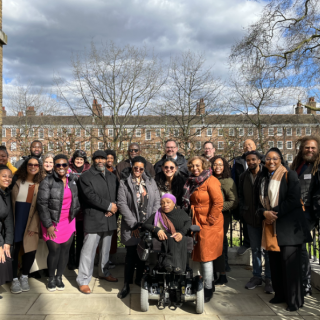Within our commitment to diversity at IES Abroad, we believe in exploring historical development and race relations in the countries where we host our students, and our staff live. This offers students invaluable opportunities to contemplate the similarities and differences within international history, and their own. As part of that goal, IES Abroad Buenos Aires students and faculty had the privilege of engaging in a captivating discussion with Historian Magdalena Candioti, Ph.D. regarding slavery and emancipation in 19th-century Argentina.
In her lecture, Dr. Candioti revealed the crucial history of the Afro-Argentine community, noting that in the 1820s, Afro-Argentines constituted approximately 30% of the population in Buenos Aires and actively participated in civil society. However, over subsequent decades, the community faced marginalization and was gradually erased from Argentine society. She shared that this was influenced by factors including:







